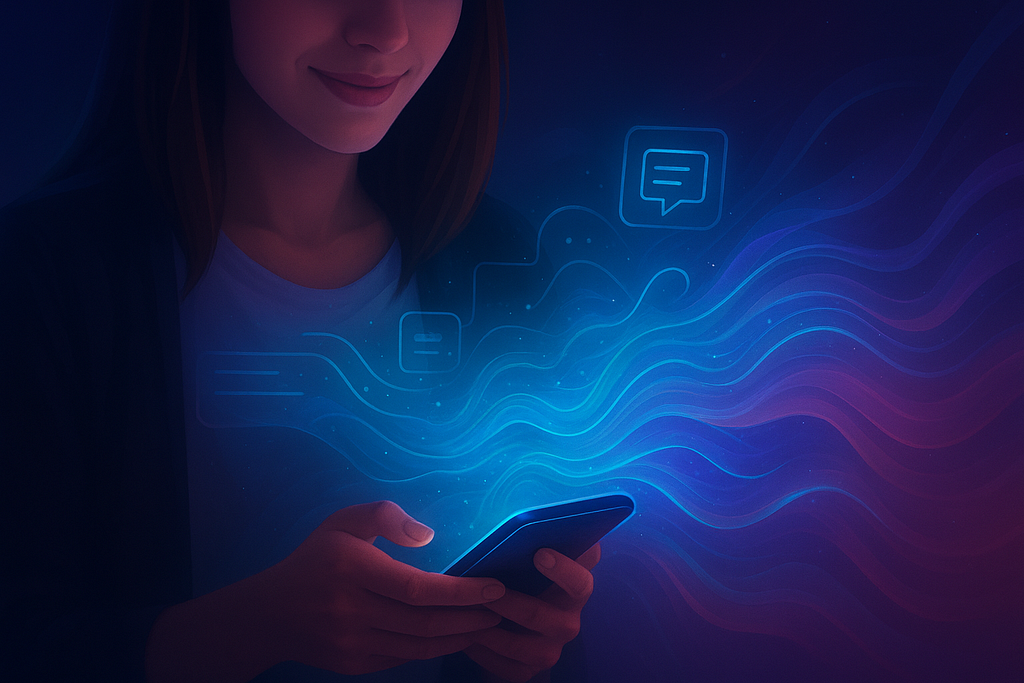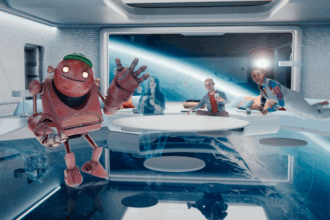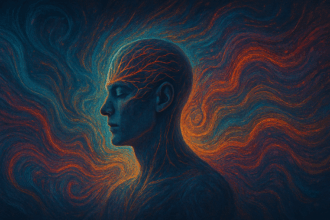Your Phone Is About to Become Your Best Friend
You know what happened to me last Tuesday? I woke up and my phone had already figured out my entire day. I hadn’t asked it to do anything special, but somehow it knew I’d slept poorly and had prepared a gentler news feed. It had my coffee order ready for pickup, rescheduled a meeting that would have conflicted with my workout, and somehow knew I was out of milk based on my shopping patterns.

This got me thinking about where we’re heading with our devices. They’re not just tools anymore. They’re becoming something much more interesting.
Let me tell you about Sarah. She’s a marketing director in Paris, and her relationship with technology has completely changed over the past few years. Five years ago, her phone was like a really expensive calculator. She’d unlock it, search for stuff, type messages, close apps. Everything required her to think about what she wanted to do first.
Now? Her phone feels almost psychic. She takes a photo of a business card and it automatically adds the person to her contacts with a reminder to follow up next week. When she texts her mom about dinner plans, her phone suggests restaurants based on what it knows about her mom’s dietary restrictions from previous conversations. When she’s running late to a meeting, it shares her arrival time with everyone and finds the fastest route around construction.
What’s really happening here is something called predictive design. Instead of waiting for you to tell it what to do, the technology tries to figure out what you’ll need next.
But here’s where things get complicated. Most current systems require your data to travel across the internet to massive server farms. It’s the classic trade-off between getting personalized experiences and giving up privacy. And let’s be honest, not everyone is comfortable with that exchange.
That’s what makes what’s happening now so potentially revolutionary, though it comes with its own set of challenges.
The phone in your pocket right now has more processing power than computers that took up entire rooms just twenty years ago. Modern smartphones now deliver 38–80 TOPS (trillion operations per second), enough to run sophisticated language models and real-time image processing that previously required data centers. This isn’t just about faster processors it’s about what this power enables: AI that could know everything about you while theoretically keeping all your secrets completely private.
To understand why this matters, we need to distinguish between three approaches to AI processing. Traditional cloud AI sends your data to remote servers for processing powerful but privacy-compromising. Pure on-device AI processes everything locally private but limited by hardware constraints. The emerging hybrid approach runs most tasks on-device but can securely access cloud resources when needed, using techniques like differential privacy and encrypted computation that could maintain privacy even during cloud interactions. Apple’s Private Cloud Compute exemplifies this hybrid model, extending on-device privacy guarantees to specially designed cloud servers that process data without storing it.
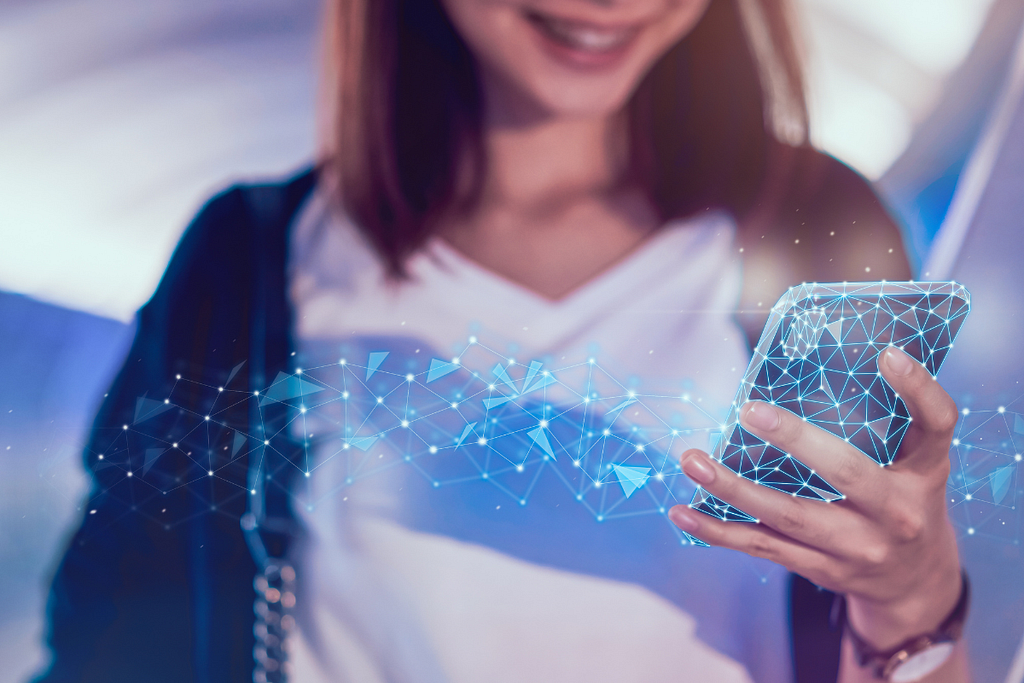
Recent advances allow AI systems to run sophisticated models directly on your device. When your phone suggests the perfect emoji as you type, it could be analyzing your communication style right there in your pocket rather than sending your message to distant servers. Early evidence suggests processing costs for AI dropped dramatically between 2022 and 2024, making local processing increasingly viable a trend confirmed by independent research from Stanford’s AI Index.
This creates something we’ve rarely had in computing: the potential for genuine intimacy without vulnerability. Your AI could analyze all your photos, messages, browsing history, and app usage while keeping everything private.
People who use these systems describe something qualitatively different from traditional software. They say their devices “learn my voice” or “understand what I meant to say.” This isn’t just better algorithms. It’s technology that feels genuinely intelligent and responsive.
The health monitoring capabilities show just how intimate these AI companions could become. In testing, Apple Watch AI has shown promise in detecting health changes with high accuracy¹. I spoke with Dr. Lisa Chen, a cardiologist at UCSF, who told me her watch noticed irregular heart patterns during stressful periods that she hadn’t consciously recognized. It helped her prevent several burnout cycles.
The remarkable thing? All of this happened without sending any of her health data anywhere.
Now imagine scaling this level of understanding across every part of your digital life. Your AI could learn your creative rhythms, your social energy patterns, when you learn best, what you need emotionally. It might understand that you write better in the morning but prefer collaborative work in the afternoon. It could notice when you’re stressed from how you type and suggest you take a break.
This is happening faster than most people realize. Hardware continues getting more powerful every 12 to 18 months. These improvements could enable AI companions with richer conversation and stronger context awareness capabilities.
Future AI companions might handle your entire travel planning with real-time optimization, understanding not just your preferences but your energy levels and social needs. They could serve as personalized tutors that adapt to exactly how you learn best. They might provide mental health support while maintaining complete confidentiality.
But this future raises important questions. Research suggests that 42% of people worry about data security as AI gets more personal, while 28% are concerned about becoming too dependent on AI for relationships. There’s ongoing debate about whether these systems might create unrealistic expectations for human relationships.
Technical challenges remain significant. Long-term memory, context management, and ensuring fairness across different user groups all need continued development. The promise of local AI also depends on hardware advances continuing at their current pace, which isn’t guaranteed.
But here’s what I find most fascinating about where we’re heading: for the first time in computing history, technology could become genuinely intimate, personal, and intelligent. Not because it knows more facts than before, but because it might truly know you.
Your future AI companion might not just follow commands or answer questions. It could understand your goals, anticipate your needs, learn from your feedback, and adapt its personality to work well with yours.
This transformation will likely happen gradually, then all at once. The age of digital companionship could be starting right now, on the device you probably have within arm’s reach.
The future isn’t about humans competing with machines. It’s about humans potentially working with machines as true partners. And honestly? That future might be closer than most people think.
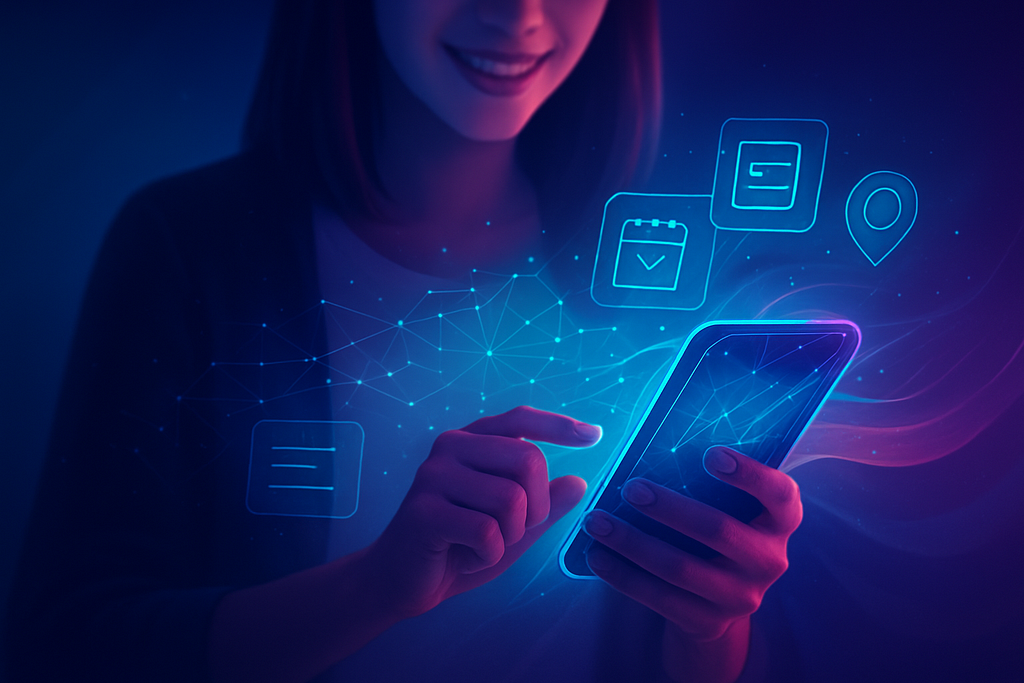
¹ Stanford research on Apple Watch AI showed promising results in symptom detection, though studies were conducted under controlled conditions with specific demographics and may not generalize to all populations or use cases.
Sources
- Medium — Understanding Google Autocomplete: A Powerful Search Enhancement https://medium.com/@vlinkvox/understanding-google-autocomplete-a-powerful-search-enhancement-f4304fc87a8b
- Google — How Google autocomplete predictions are generated https://blog.google/products/search/how-google-autocomplete-predictions-work/
- TechTarget — What is Predictive Text? Definition and How to Use it https://www.techtarget.com/whatis/definition/predictive-text
- TechRadar — TOPS explained — exactly how powerful is Apple’s new M4 iPad chip? https://www.techradar.com/computing/artificial-intelligence/tops-explained-exactly-how-powerful-is-apples-new-m4-ipad-chip
- AMD — AMD Announces Expanded Consumer and Commercial AI PC Portfolio at CES https://www.amd.com/en/newsroom/press-releases/2025-1-6-amd-announces-expanded-consumer-and-commercial-ai-.html
- Intel Newsroom — Intel Achieves First, Only Full NPU Support in MLPerf Client v0.6 Benchmark https://newsroom.intel.com/client-computing/intel-achieves-first-only-full-npu-support-mlperf-client-v0-6-benchmark
- Apple — Apple introduces M4 Pro and M4 Max https://www.apple.com/newsroom/2024/10/apple-introduces-m4-pro-and-m4-max/
- Apple — Apple introduces M4 chip https://www.apple.com/newsroom/2024/05/apple-introduces-m4-chip/
- IEEE Spectrum — Qualcomm’s Snapdragon X2 Promises AI Agents in Your PC https://spectrum.ieee.org/qualcomm-snapdragon-x2
- Netguru — Beyond the Cloud: Pioneering Local AI on Mobile Devices with Apple, Nvidia, and Samsung https://www.netguru.com/blog/beyond-the-cloud-pioneering-local-ai-on-mobile-devices-with-apple-nvidia-and-samsung
- Apple — New Apple Intelligence features are available today https://www.apple.com/newsroom/2025/09/new-apple-intelligence-features-are-available-today/
- Apple Machine Learning Research — Apple Intelligence Foundation Language Models Tech Report 2025 https://machinelearning.apple.com/research/apple-foundation-models-tech-report-2025
- Samsung — Your Privacy, Secured: Inside the Tech Powering Safe, Personalized Galaxy AI Experiences https://news.samsung.com/global/your-privacy-secured-inside-the-tech-powering-safe-personalized-galaxy-ai-experiences
- Apple Security Research — Private Cloud Compute: A new frontier for AI privacy in the cloud https://security.apple.com/blog/private-cloud-compute
- Stanford HAI — The 2025 AI Index Report https://hai.stanford.edu/ai-index/2025-ai-index-report
- Deloitte — New Deloitte Survey: Increasing Consumer Privacy and Security Concerns in the Generative AI Era https://www.deloitte.com/us/en/pages/about-deloitte/articles/press-releases/increasing-consumer-privacy-and-security-concerns-in-the-generative-ai-era.html
- Microsoft Blogs — Your AI Companion https://blogs.microsoft.com/blog/2025/04/04/your-ai-companion/
- Business Research Insights — AI Companion Market Size, Growth Forecast 2035 https://www.businessresearchinsights.com/market-reports/ai-companion-market-117494
- MIT Technology Review — AI companions are the final stage of digital addiction, and lawmakers are taking aim https://www.technologyreview.com/2025/04/08/1114369/ai-companions-are-the-final-stage-of-digital-addiction-and-lawmakers-are-taking-aim/
- PCWorld — Rising to the TOPS: How will NPUs and Windows AI grow in 2025? https://www.pcworld.com/article/2551576/how-will-npus-and-windows-ai-grow-in-2025-tops.html
Your Phone Is About to Become Your Best Friend was originally published in Bootcamp on Medium, where people are continuing the conversation by highlighting and responding to this story.


